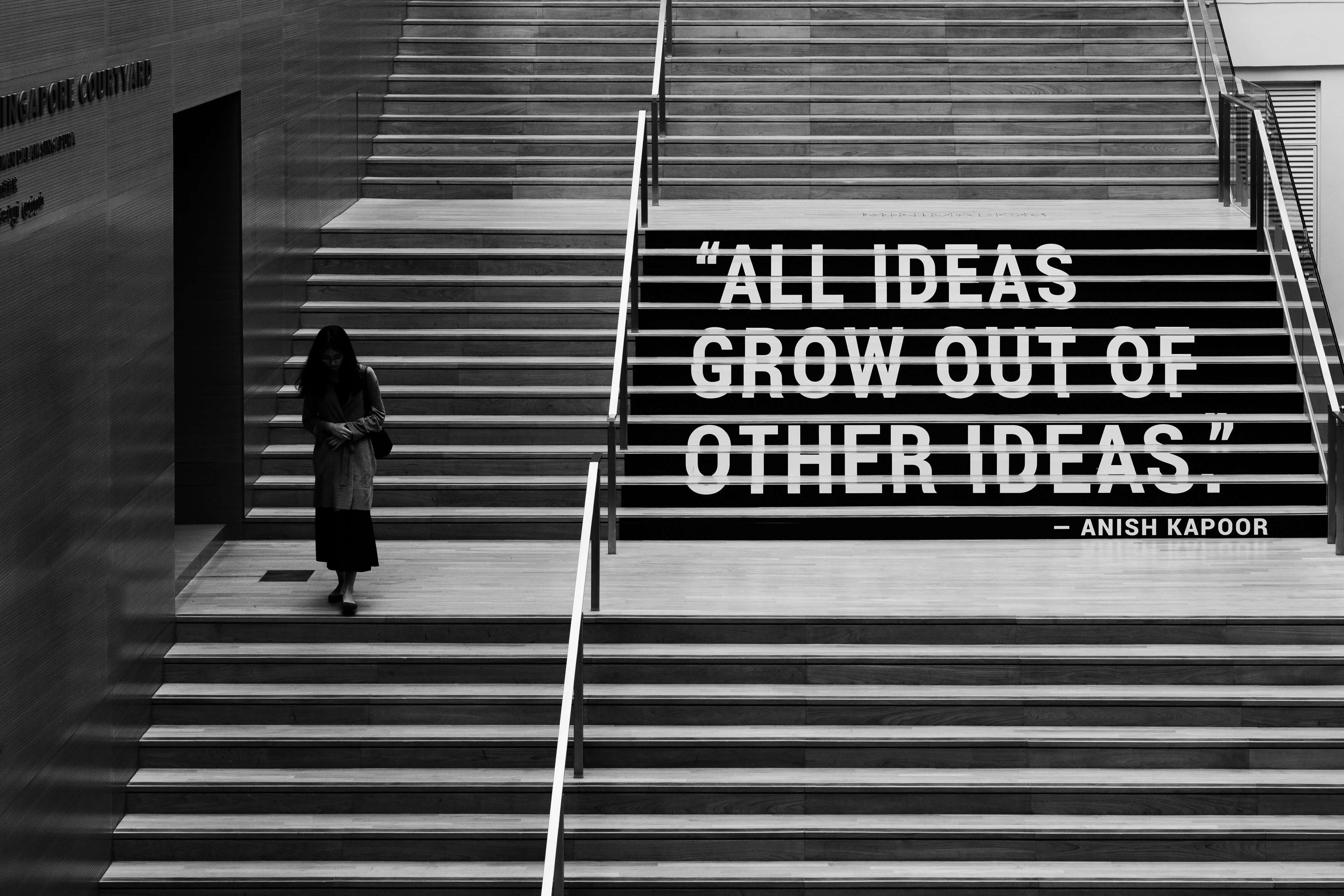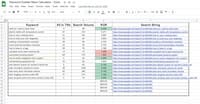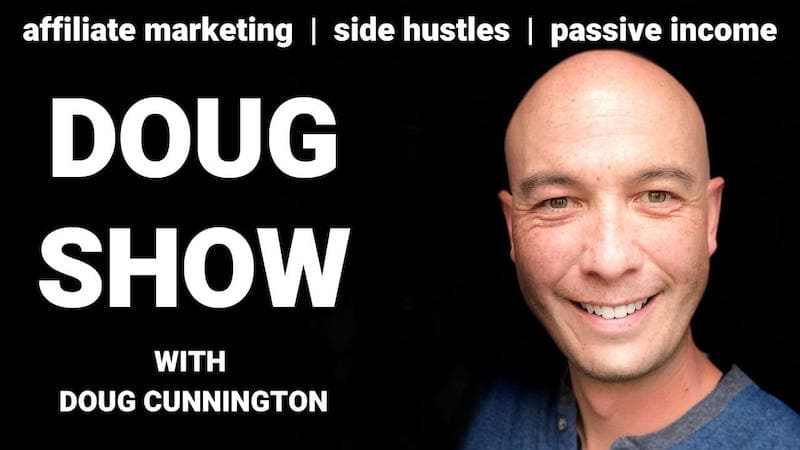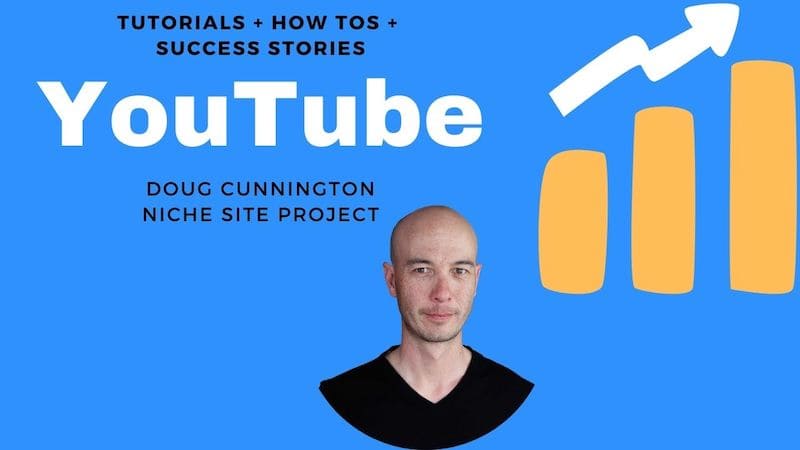Christy makes $2,500 per month for her site that she started in the fall of 2018. It’s amazing because she was a newbie and didn’t know anything about affiliate marketing. You might remember her success story and interview from YouTube here or from her other helpful post about working with writers from Upwork.
Christy shares 10 things that she wasted time on. So learn from her mistakes and don’t waste time!
It’s easy to become overwhelmed when starting your first niche site. You sign up for the courses, join the Facebook groups, and pour over helpful tips online. You want to do everything “right.” You worry that if you miss one tiny step, your site will never make a dime.
It all feels so darn… serious!
As a new affiliate marketer with a site that’s less than one year old, I know exactly how you feel.
Reflecting on my first few months, I now realize that many of the tasks I assumed were “must haves” really weren’t. There were quite a few items I didn’t need to prioritize in the early days, and that’s what this blog is all about.
10 Tasks That Can Wait Until Later
Quick disclaimer: The items below can be valuable, and you may still decide to spend time on these tasks at some point. They simply don’t warrant a spot on my list of make-it-or-break-it essentials when ramping up a new niche site.
1. Agonizing Over Your Niche
Wait… what?! Isn’t this the MOST important thing an affiliate marketer needs to do? Yes and no.
Yes, you need to do some competition research, ensure there are enough buyer’s keywords for you to target, and do a gut-check about whether this is a topic you can reasonably write about for a while.
No, you do not need to agonize over choosing a niche for ages. I allowed myself to become afflicted with analysis paralysis. I knew exactly what niche I wanted to do from day one.
But, I spent weeks second guessing myself as I tried to force my niche to check every box on every thought leader’s list for how to identify a viable niche. (Yes, Doug, including yours!)
Lesson Learned: If you’re passionate about a particular niche, don’t see a ton of big competitors, and can think of at least three ways to monetize the site over time, #justdoit.
(Doug gives some info on how to find a profitable niche)

2. Falling Into a Keyword Research Rabbit Hole
Hold up… this too?! No matter your niche, we can all agree that quality keywords are critical, right? Yes, keyword research is a must-have, and you do need to spend some time here up front.
No, you don’t need to spend weeks upon weeks creating a detailed spreadsheet of 400+ keywords, calculating KGR for each one, and assigning each a content creation priority level. (Um, yes, I did exactly that.)
Sure, it’s nice to have a giant list of keywords to pull from now. But, I didn’t need to spend nearly so much time on this in the beginning.
If you’re anything like me, though, and worry you’ll forget that all those great topic ideas that came to you at 3 a.m., simply dump those items into a spreadsheet or notes app to come back to later.
3. Starting Social Media Accounts
Depending on your niche, your skills, and your interests, social media may be a solid supporting tool for your site. But, you don’t need to join 12 social media channels on day one and then try to fill them with meaningful content.
Yes, it’s usually worth it to start a Pinterest account and invest time posting SEO-rich pins that drive traffic to a young site. Early on, this was the primary way visitors found my site at all. (Social media visitors typically convert at lower rates than those searching buyer’s keywords on Google, but all traffic is a good thing.)
No, you don’t need to create a YouTube channel, Instagram, podcast, Twitter account, and Facebook page. I mistakenly thought I needed Instagram, YouTube, and Pinterest right off the bat, but there’s never been enough time to post meaningful content across them all, so I had to prioritize.
Lesson Learned: Start a Pinterest account, and educate yourself about how to optimize pins for keywords Pinterest users are searching. These are often related but different than the keywords you’ve targeted in your blog for Google. Leave all the other social media channels for later (if ever).

4. Writing Everything Yourself
I’ve been a writer my entire life, and it’s one of the ways I make a living outside my niche site. That made it really hard for me to delegate any content creation in the early days. I spent days perfecting every blog post, which resulted in really high-quality content… but not much of it. Yes, quality is important.
You may be an expert in your niche and have a strong opinion about how articles should be written, formatted, and edited. No, you don’t need to grind your site to a halt while you try to squeeze in a few hours from midnight to 2 a.m. to write the next blog on your list.
Instead, roll up your sleeves on some initial posts before bringing other writers into the loop to help conquer your initial topics list. Since every article can take 8-10 months to fully “bake” on Google, you’ll be better off investing some funds in writers and front-loading your site with content.
I learned this lesson several months in, and I wish I’d hired help earlier so the bulk of my content would be several months older by now!
Lesson Learned: I suggest writing the first 10-20 blog posts yourself and making them the best they can be. Then, use those posts as shining examples to train freelance writers who can take over some of the ideas on your to-do list. If you’re not sure how to hire and manage freelance writers, check out my other guest post about that here.
5. Building Your Brand
My “day job” is marketing, so I went deep on my site’s brand and WordPress template up front. Yes, a quality name, logo, tagline, and template helps lend your site credibility to Google and visitors.
No, you don’t need to be a professional marketer or web developer to create a decent brand and site design. For me, this part was actually fun, and I now have a name, brand, and website design that I really love. However, none of those factors likely impacted my site’s early success in a measurable way.
Lesson Learned: If you enjoy branding and design, allow yourself 2-3 days to create a name, logo, and template you feel good about. Then, force yourself to leave it be and focus on content creation. You can always come back to tweak your brand later!
6. Chasing Every Fun Idea
In the early days, your brain will probably be buzzing with new ideas for your site. You’ll think of cool programs, info products, social media campaigns, and more.
Yes, be sure to capture all your ideas (even the ones you think are probably not going to go anywhere) in a list for the future. Once you have a decent amount of content on your site, you can revisit your creative ideas list and dig into the front runners.
No, don’t bite off more than you can chew. Until you start getting meaningful traffic to your site (1,000+ visitors per day is a good starting point), conversions on info products or email list signups won’t be worth your time.
Lesson Learned: Programs, info products, and campaigns take a lot of time. It’s better to wait until you can execute each idea well than to half-ass them at the same time you’re trying to build up your blog content. If you just can’t help yourself, pick ONE creative idea to chip away at early on.

7. Setting Up Email Campaigns
I worked at an email software company for more than a decade, so my brain was hard-wired to believe that creating an email list was super important from day one.
Yes, building an email list can be a great way to market info products and affiliate products down the road. No, you don’t need to have an email sign up or drip campaign ready to go on day one.
You can always come back and add these tools later once your site is getting significant traffic. I was more stressed out having an email sign up on my site and knowing subscribers wouldn’t receive any content than I would’ve been not having an opt-in available at all.
Lesson Learned: Spend your initial time on SEO-rich blog content instead of drip email campaigns, welcome emails, and fiddling with WordPress / MailChimp integrations.
8. Checking Your Traffic or Earnings Obsessively
Self-discipline is an essential trait for any affiliate marketer, but that doesn’t mean it’s easy. Yes, you should make sure your Google Analytics and Amazon Affiliate Program accounts are set up properly and tracking activity the first week or two.
No, you should not log in on Google Analytics and Amazon every other hour to see if the needles moved. Low traffic and earnings are completely expected as a new site ramps up, but they can also be extremely demotivational. #beentheredonethat
Lesson Learned: Choose one day and time each week to check your traffic and earnings. That’s it. After a few months, you’ll be able to see the encouraging upward trajectory that proves all your effort is starting to work!

9. Optimizing for International Visitors
I really wound myself up over this one. Back in the days when my site was getting *maybe* ten visitors per day, I become convinced that I needed to implement Amazon OneLink.
This is Amazon’s way of routing non-US traffic to the appropriate international version of their site so you don’t (in theory) lose out on non-US purchases. Yes, of course, you want to capture all traffic and revenue from all geographies.
No, you don’t need to worry about this in your first 2-4 months. Unless your site traffic magically skyrockets (lucky you!), there isn’t enough US traffic–let alone international visitors–to make the time and effort of setting up OneLink worth it.
Lesson Learned: Put a reminder on your calendar to set up OneLink (or a similar service like GeniusLink *affiliate link) after three months. This way you can rest easy that you won’t forget to do it, but you won’t waste time applying to each of Amazon’s international affiliate programs before you have enough traffic to drive the minimum purchases required to be accepted.
10. Doubting Yourself
Feel like your site will never take off? Convinced you’re pouring time and money into a dead-end folly? Join the club. We’ve all been there.
Yes, you need to be realistic about the time and effort required to make a truly successful niche site. It takes months, years, and even decades to build up a lasting authority site.
No, you can’t let self-doubt, lack of patience, and other issues dissuade you. Niche sites are, in large part, leaps of faith. Creating a list of specific milestones and/or goals will help keep you motivated and give you reasons to celebrate along the journey.
Lesson Learned: Commit, recommit, and stay committed. Celebrate the small victories (e.g your first visitor, your first sale, your first blog comment), and remember why you’re doing this in the first place.
What IS Worth Your Time Early On?
Time spent on these tasks is never wasted:
- Creating Quality Content: My site is now ~6 months old, and it has more than 100 blog posts. That’s something I’m very proud of, but it took a lot of time, and about half of those articles were ghost-written by freelancers. Investing time and money upfront added a ton of SEO “juice” to my site, made it more attractive to Google, and helped me reach $400 per month much faster.
- Focusing on Outreach: This is a tough one, and everyone really wants to skip it. (Me too!) But, blog commenting, guest posts, and outreach to influencers in your niche can dramatically improve your authority with Google. If you can’t face doing a little outreach every day, set reminders to spend one afternoon per month solely focused on outreach.
- Putting Processes in Place: You don’t want to recreate the wheel every time you publish a new blog. I made a spreadsheet to track each of the smaller tasks I need to do once a new blog goes live (e.g. create three internal links to and from the new post) so I don’t forget anything. I physically print this list and check items off as I go.
Time is Money. You can see an example of how much money by reading how much do Amazon Affiliates make.
Make sure you spend yours well, especially when you’re first ramping up your new niche site. If you produce quality content and follow the most basic best practices, your site should consistently gain traffic–and revenue–as you progress through the first year. Good luck!




Comments on this entry are closed.
I made all these mistakes and probably 42 others. 🙂
Great article! I started an affiliate site at the beginning of the year (well, that wasn’t the intention when I started it, but whatever) and so much of this rings true.
Time wasters like social media can take time away from doing what actually matters.
Guilty on all accounts, wish I’d had this to refer to a couple of years ago.
Great article.
I have to say, I just love Christy’s tips!
Couldn’t agree more with the written above : )
Fantastic! I have bookmarked for future reference to keep on track. Thanks for sharing.
Writing by myself is my biggest time waster. With a limited budget to spend on content, I have to write most of the articles by myself. Wish I have more budget to outsource all contents.
Great article with a lot of important ideas newcomers should hear!
I made some of the same mistakes. One of my biggest is doing content all alone. Moving forward that will have to change, so people should consider it inevitable and a good thing.
That’s one thing I’m having to learn and get ready to implement either when adding new sites or growing my current ones.
Also, social media (like have a Facebook page and Twitter etc) did not benefit my sites. I am now starting with Pinterest and there is some benefit to be gained there (traffic and exposure) but the others I think were a poor use of my time.
Christy’s experiences reflect my own, and what I try so hard to express to beginners too: Success always comes down to the basics!
• Keyword research
• Produce content
• Work on ranking what needs work
…and keep doing more of the same!
Thanks Doug and Christy for a nice, informative article. 🙂
Found myself guilty of those too. I would be far down the road now if I had avoided those from the beginning but I wouldn’t listen to advice 🙁
. Thanks for sharing, Christie.
Great Post. This is me going over keyword research everytime. I suffer from this particular problem. Just trying to just select a few keywords and focus on them so I can’t at least get some work done. Thanks for sharing.
This is a great article has I am in the niche paralysis analysis phase lol . I actually know I am into tech products, startups etc. I guess the area that interests me most is softwares and tools to help business your inbound channels and marketing — I like to tinger with products so maybe a small business focus for key tools that exist — recurring revenue stream!
Hey Christy thanks for sharing such a helpful article. It really cleared my mind. I’m starting a new niche site, it’s not my first but still I was getting distracted especially in keyword rabbit hole. Your tips are definitely going to help me out. Thanks ?
Really, a truly motivational article. You have not left any mistakes done by me too. Irrespective of everything, we have to agree ” Content is the King”. Thanks for sharing this booster article for newbies.
Everyone makes the same mistakes especially those who start a niche site the first time. But as soon as we realize these problems it’ll be fine 😀
Great article! On the checking obsessively earnings I couldn’t chuckle 🙂 That’s me haha
Nice tips of what to avoid. I think in hind site we all can come up with things we wished we would have done. Mine is actually focusing on my affiliate site. LOL
In general more power bring content on micro niche website or in more general niche websites?
This is something is bugging me lately so I had to ask about your opinion.
I really don’t take my Pinterest seriously, I have more than 600 followers but I have not be utilizing them. I just started a new affiliate site and am yet to make my first sale. The page is just 21 days old, I believe I am going to make a sale soon.
I made every single mistake. This article completely sums up what I would tell someone just starting to blog.
Great article, as I just started niche site and getting this type of rightful information saved my lots of time and efforts.
Thanks Dough
8. Checking Your Traffic or Earnings Obsessively
This was a huge struggle in the beginning. Numbers trickle in and you can easily become demotivated if growth isn’t what you expected (let’s be honest that’s usually the case when we start out).
I check traffic and earnings each morning. For me, once a week is too infrequent, especially if an issue arises and you don’t pick it up until days after it happened. It’s also hard to get a grasp on trends, which can help you to be proactive rather than reactive.
In the early days though I think this is a good step. But once traffic and earnings picks up so should your monitoring. You need to know your numbers inside and out.
Thanks was a interesting article i really enjoy it.
Christy, thanks for sharing the 10 tasks that can wait until later.
Great article and tips on what we should be doing.
#8 is hard not to do because you feel like it is a gage of how you are doing but really it just distracts from what you should be doing.
Outreach is the hardest mentally especially if you aren’t making the money yet or your traffic tanks for a bit.
Doug, I get something from your blog every time I visit!
Thanks for this info – saved me quite a bit of time! Also nice to know I’m not alone in feeling all these things. My motto lately has been
Don’t judge each day by the harvest you reap but by the seeds that you plant. – Robert Louis Stevenson.
Love this blog! It’s been very helpful <3
Good article, thanks. I also spin my wheels at times and some nights i fell like i hardly made any forward progress at all. But the key for me is to make lists and each time i sit down to do a bit of work, i review my list, confirm my priorities, and get to work.
Infact it’s an ever evolving piece of creativity..where sometimes you just can’t believe the work you produced in the stages, however every step has its own unique contribution.
You have precisely summarised one of the most effective course of action in this journey. Great going.